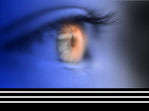Sleepless
by David Barber
"Coachman, halt
at the brow of the hill."
"Your new
home," he tells his bride, pointing out Langmoor house and the estate
stretching to the coast, though today the sea is veiled by mist.
"Drive on,
coachman."
He can see she is
weary. It has been a long journey over roads that barely deserve the name. He
has caught her eyes closing until the roadway jolted her awake again.
"There should be
no secrets between man and wife. Is there anything you wish to ask me?"
Her family must have
heard rumours, though nothing to prevent an advantageous match.
No, he cannot recall
if he ever slept as an infant, but does not think so, and if a day exercised
him particularly, he sits until any weariness passes, like recovering his
breath. But the urge to sleep? No, he has never felt it.
She regards him with
large eyes, her best feature. Though she is pretty enough, with lace and ribbons, she was sure
to become as plump and double-chinned as her mother in time. That was not a
concern, of course.
"Three
generations," he explains. "Some felt it was a curse, though I see it
as a gift.
"My grandfather
inherited Langmoor from a distant relative and seems to have been the first
affected. Who can say what being the only one of his kind does to a man?
"He believed he
was the victim of a cruel disease, and endlessly tried doctors, quacks and
potions. Of course, sleeping draughts will bludgeon consciousness from the
brain, but their effect lessens with habit and they have unwonted drawbacks. My
father described him as a man not content with his fate."
He gazes out the coach
at sodden fields.
"In later life he
roamed this countryside after dark. Perhaps he sought distraction, though that
is being charitable. Neighbours heard cries at night; some even claimed he
peered in at their windows.
"When my father
was just eighteen, my grandfather was discovered fallen at the foot of the
cliffs. A sympathetic coroner declared he must have lost his way in the dark.
"Do not distress
yourself, it was long ago and I never knew him."
Now he has started, he
finds it a relief to unburden himself.
"By contrast, my
father said it was enough that sleep no longer squandered years of his life. He
said sleeping was the quick pretending to be dead.
"His late
half-brother, my Uncle Silas, who aspired to be an author, wrote that sleep is
akin to death, yet sleepers welcome it, then return like Lazarus. He believed
the hours gained would water his creative drought, though mostly we seek a
second occupation."
His father had managed
the estate during daylight hours and at night carried out his experiments.
"On animals. He
thought the family curse might be explained by a sufficient understanding of
the brain. His efforts gained him an unsavoury reputation and he was shunned by
his neighbours. He was a recluse all his life."
The carriage passed
familiar woods and hedgerows. The light was going, the early gloom of an autumn
afternoon.
"I have not
mentioned my mother. She died young; as did my grandfather’s first and second
wives, causing speculation at the time. My father never remarried. He must have
had his reasons."
But then his father
had been mad, like his father before him. He does not say this.
"Fools ask how
long I have been awake, as if politely inquiring about an illness. Do they not
see I gain years of living denied them! Nor have I succumbed to the mistakes of
my forbearers. I am neither sick nor cursed, and medical men are wrong about
the need for dreams to keep us sane.
"Did you know the
eyes of dreamers follow that private show beneath closed lids?"
Her head nods with the
motion of the carriage.
Soon they will turn
into the drive of Langmoor and perhaps he should wake her to see it.
After all, he can
watch her nightly as she sleeps, the tides of her breath, her downy cheek, the
pulse in her defenceless throat.
The End

